Уильям Моэм - Мистер Всезнайка. Рассказы
- Название:Мистер Всезнайка. Рассказы
- Автор:
- Жанр:
- Издательство:неизвестно
- Год:неизвестен
- ISBN:нет данных
- Рейтинг:
- Избранное:Добавить в избранное
-
Отзывы:
-
Ваша оценка:
Уильям Моэм - Мистер Всезнайка. Рассказы краткое содержание
Метод чтения Ильи Франка
Мистер Всезнайка. Рассказы - читать онлайн бесплатно полную версию (весь текст целиком)
Интервал:
Закладка:
entire [In'taIq], confidence ['kOnfId(q)ns], precaution [prI'kO: S(q)n]
Both were serving life sentences for murder; the commandant told me that I could place entire confidence in them; they were as honest as the day, and I could leave anything about without the slightest risk. But I will not conceal from the reader that when I went to bed at night I took the precaution to lock my door and to bolt my shutters. It was foolish no doubt, but I slept more comfortably.
I had come with letters of introduction (я приехал с рекомендательными письмами; letter — буква; письмо, послание; introduction — официальноепредставление, знакомство ), and both the governor of the prison settlements and the commandant of the camp at St. Laurent did everything they could to make my visit agreeable and instructive (и оба — и губернатор тюремных поселений, и начальник лагеря в Сент-Лорене — делали все возможное: «все, что они могли» чтобы сделать мое пребывание приятным и содержательным; instructive — поучительный ). I will not here narrate all I heard and saw (здесь я не буду пересказывать всего, что я слышал и видел). I am not a reporter (я не корреспондент). It is not my business to attack or to defend the system (это не мое дело — критиковать или защищать систему; toattack— нападать, атаковать ) which the French have thought fit to adopt in regard to their criminals (которую французы сошли подходящей, чтобы применить по отношению к своим преступникам; fit— годный, подходящий; подобающий, достойный;toadopt— усыновить, удочерить; принимать, усваивать;regard— внимание, забота; отношение ).
governor ['gAv(q)nq], commandant ["kOmqn'dxnt], instructive [In'strAktIv]
I had come with letters of introduction, and both the governor of the prison settlements and the commandant of the camp at St. Laurent did everything they could to make my visit agreeable and instructive. I will not here narrate all I heard and saw. I am not a reporter. It is not my business to attack or to defend the system which the French have thought fit to adopt in regard to their criminals.
Besides, the system is now condemned (кроме того, теперь эта система признана негодной; tocondemn— приговаривать; осуждать, порицать; браковать, признавать негодным для использования ); prisoners will soon cease to be sent out to French Guiana (вскоре заключенных больше не будут отправлять во Французскую Гвиану; tocease— прекращать, положить конец /чему-либо/;tosendout— испускать, излучать; выгнать, отправить /куда-либо/ ), to suffer the illnesses incidental to the climate (/где бы они/ страдали от болезней, присущих климату) and the work in malarial jungles to which so many are relegated (и /болезней, присущих/ работам в малярийных джунглях, на которые отправляют так много /людей/), to endure nameless degradations (/чтобы/ сносить невыразимые унижения; nameless — безымянный; отвратительный; to degrade — ухудшать; унижать ), to lose hope (терять надежду), to rot (гнить), to die (умирать). I will only say that I saw no physical cruelty (единственное, что я скажу, что никакой физической жестокости я не видел; physical— физический, материальный; телесный, физический;physicalcruelty— причинение физических мучений ). On the other hand I saw no attempt (с другой стороны, я не видел ни одной попытки; hand— рука; сторона ) to make the criminal on the expiration of his sentence a useful citizen (сделать преступника по окончании срока его наказания полезным гражданином; expiration— выдыхание, выдох; окончание, истечение /срока/ ).
condemned [kqn'demd], incidental ["InsI'dent(q)l], climate ['klaImIt], malarial [mq'le(q)rIql], physical ['fIzIk(q)l], cruelty ['kru: qltI], expiration ["ekspI'reIS(q)n]
Besides, the system is now condemned; prisoners will soon cease to be sent out to French Guiana, to suffer the illnesses incidental to the climate and the work in malarial jungles to which so many are relegated, to endure nameless degradations, to lose hope, to rot, to die. I will only say that I saw no physical cruelty. On the other hand I saw no attempt to make the criminal on the expiration of his sentence a useful citizen.
I saw nothing done for his spiritual welfare (я не видел, чтобы хоть что-то было сделано для его духовного благополучия; welfare— благосостояние; благополучие ). I heard nothing of classes that he could attend in order to improve his education (я ничего не слышал о /каких-нибудь/ курсах, которые он мог бы посещать для того, чтобы он /мог/ пополнить: «улучшить» свое образование; class— класс, разряд; занятия, курс обучения ) or organised games that might distract his mind (или /каких-нибудь/ организованных спортивных играх, которые могли бы отвлечь его мысли; game— игра; спортивные состязания, соревнования ). I saw no library where he could get books to read (я не видел ни одной библиотеки, где бы он мог взять книги почитать) when his day’s work was done (после завершения дневного труда). I saw a condition of affairs (я видел такое положение дел) that only the strongest character could hope to surmount (которое мог надеяться преодолеть только наисильнейший характер). I saw a brutishness (я видел скотство; brute— животное, тварь; глупый и тупой человек, «скотина»;brutish— жестокий, звероподобный; глупый, тупой ) that must reduce all but a very few to apathy and despair (которое должно было довести всех, за исключением очень немногих, до апатии/равнодушия и отчаяния; toreduce— снижать, сокращать; доводить /до какого-либо состояния/ ).
spiritual ['spIrItSuql], welfare ['welfeq], education ["edju'keIS(q)n], surmount [sq'maunt], apathy ['xpqTI], despair [dIs'peq]
I saw nothing done for his spiritual welfare. I heard nothing of classes that he could attend in order to improve his education or organised games that might distract his mind. I saw no library where he could get books to read when his day’s work was done. I saw a condition of affairs that only the strongest character could hope to surmount. I saw a brutishness that must reduce all but a very few to apathy and despair.
All this has nothing to do with me (все это меня не касается; to have nothing to do with — неиметьникакогоотношения, ничегообщегос ). It is vain to torment oneself over sufferings that one cannot alleviate (бесполезно мучить себя из-за страданий, которые не можешь облегчить; vain — тщетный, напрасный ). My object here is to tell a story (здесь моя цель — рассказать историю; object— предмет, вещь; конечная цель, намерение ). As I am well aware, one can never know everything there is to be known about human nature (как мне хорошо известно, никто не может знать всего, что может быть известно о человеческой природе; nature— природа, мир; натура, характер, нрав ). One can be sure only of one thing (можно быть уверенным только в одном; thing— вещь, предмет; нечто, что-то ), and that is that it will never cease to have a surprise in store for you (и это в том, что она /человеческая природа/ никогда не перестанет удивлять тебя; asurprise— удивление; неожиданность, сюрприз;store— запас, резерв ).
suffering ['sAf(q)rIN], alleviate [q'li: vIeIt], aware [q'weq], surprise [sq'praIz]
All this has nothing to do with me. It is vain to torment oneself over sufferings that one cannot alleviate. My object here is to tell a story. As I am well aware, one can never know everything there is to be known about human nature. One can be sure only of one thing, and that is that it will never cease to have a surprise in store for you.
When I had got over the impression of bewilderment, surprise and horror (после того, как я преодолел ощущения: «впечатления» смущения, удивления и ужаса; to get over smth. — зд. переносить, свыкатьсясмыслью ) to which my first visit to the prison camp gave rise (которые пробудил мой первый визит в исправительный лагерь; to give rise to smth. — даватьначалочему-либо, вызыватьчто-либо ), I bethought myself that there were certain matters that I was interested to inquire into (я вспомнил, что были определенные вопросы, которые мне интересно было исследовать; to bethink; to inquire /into/ —спрашивать, узнавать; расследовать, выяснять ). I should inform the reader (я должен сообщить читателям) that three-quarters of the convicts at St. Laurent de Maroni are there for murder (что три четверти осужденных в Сент-Лорен де Марони находятся там за убийство; murder — /умышленное, преднамеренное/убийство ).
bewilderment [bI'wIldqmqnt], bethought [bI'TO: t], inquire [In'kwaIq]
When I had got over the impression of bewilderment, surprise and horror to which my first visit to the prison camp gave rise, I bethought myself that there were certain matters that I was interested to inquire into. I should inform the reader that three-quarters of the convicts at St. Laurent de Maroni are there for murder.
Читать дальшеИнтервал:
Закладка:

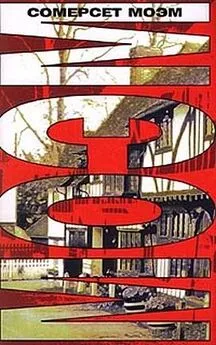
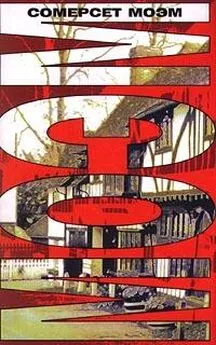

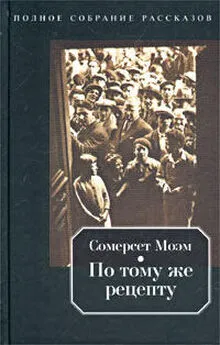
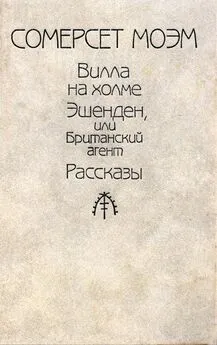
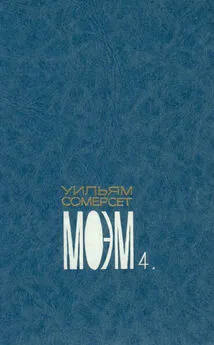
![Уильям Моэм - Сумка с книгами [Рассказы]](/books/1081361/uilyam-moem-sumka-s-knigami-rasskazy.webp)